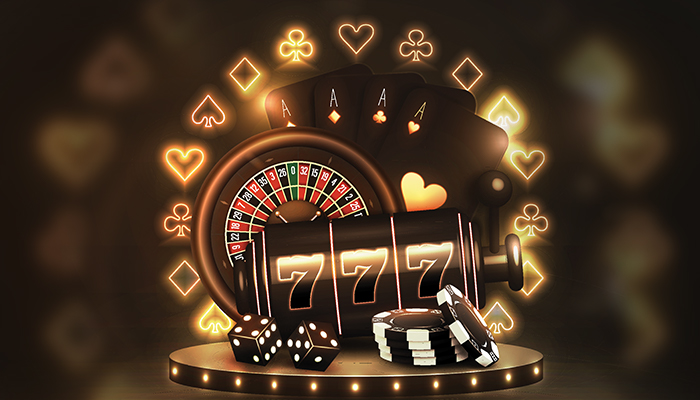5 Casino Myths Busted by Experts
 Five Casino Myths Debunked
Five Casino Myths Debunked
Casino myths have always surrounded the gambling industry. Movies, pop culture, and word-of-mouth stories have preserved many of them. These myths often impact the way people perceive gambling and casinos, sometimes leading to misguided fears or unrealistic expectations.
- Extra Oxygen
- Slots Due for a Payout
- Card Counting
- Rigged Casino Games
- Gambling is not Addictive
- FAQs
Land-based and online casinos operate under strict regulations and offer fair gaming. However, myths about rigged games, oxygen pumping, or “hot” and “cold” slot machines continue to exist. Understanding the truth behind all that can help players make more informed decisions and approach even things like the best casino bonuses with realistic anticipations. Below, we debunk five of the most common gambling myths with verified facts from expert sources.
Myth 1: Extra Oxygen Pumped in Casinos to Keep Players Awake
The myth concerns the belief that casinos manipulate the air by adding extra oxygen to keep players awake and engaged. This way, they stay alert with less fatigue and engage in longer gambling sessions, which increases the house’s profits.
The truth is that such actions are impractical and not permissible. Increasing oxygen levels in a confined space is illegal and highly dangerous under fire safety laws. These high levels can make a room more flammable. Additionally, casinos operate under strict air quality regulations and must follow safety standards that prohibit any alteration of oxygen levels.
The thing keeping players engaged in a casino environment is its design. Bright lights, lively sounds, and a lack of clocks or windows create an alluring atmosphere where players lose track of time. Free drinks and comfortable seating also make the casino experience more enjoyable than any artificial oxygen manipulation, keeping the future of land-based casinos bright.
Myth 2: Slot Machines Due for a Payout
Many believe that if a slot machine has not paid out for a longer period of time, it is “due” for a win. This is among the slot machine myths, leading gamblers to think they can predict when there will be a jackpot based on past performance.
The truth is that slots operate using Random Number Generators (RNGs), which ensure that every spin is entirely independent of previous outcomes. A machine that hasn’t paid out for hours is not “due” for a win any more than one that just hit the jackpot. Each spin is autonomous, and the odds of winning remain the same regardless of past results.
Casinos do not adjust slot machines manually to control payouts. Instead, game developers and regulatory bodies set payout percentages (RTP or Return to Player) based on long-term statistical probabilities. This means that while some players may experience winning streaks, others may hit long-losing streaks. It is all based on chance.
Myth 3: Card Counting is Illegal
This is one of the common casino myths that were started by Hollywood movies. Great examples are “Rain Man” and “21”. They made many people believe that card counting in blackjack is illegal and can get a player arrested.
The act of card counting is not illegal, but casinos strongly discourage it. That is a strategy used by skilled players to keep track of the ratio of high to low cards remaining in the deck. That allows them to make more informed decisions. While casinos reserve the right to refuse service or ban players suspected of card counting, they cannot have them arrested unless other unlawful activities occur.
To fight all that, gambling halls use multiple decks, shuffle frequently, and employ pit bosses to watch for suspicious behavior. Some even use facial recognition technology to identify known card counters. If you are caught counting cards, the worst that can happen is being asked to leave or being banned from playing blackjack.
Myth 4: Rigged Casino Games
This is probably the most popular among the online casino myths. There is this belief that casinos rig games to ensure that players always lose. That escalates, especially when they are on a winning streak. The suspicion is often based on anecdotal experiences where a player wins for a while and then suddenly experiences a streak of losses.
When you play online or at land-based venues, always go for those with licenses, strictly following the gambling regulations and executing fairness testing. Government agencies and independent auditors, such as the Nevada Gaming Control Board, the New Jersey Division of Gaming Enforcement, and Gaming Laboratories International (GLI), routinely test casino games to ensure fairness.
While it is true that casinos have a built-in house edge—an advantage that ensures profitability in the long run—this does not mean the games are “rigged.” The house edge is simply the mathematical advantage casinos have over time. They rely on volume rather than rigging games. Gambling halls and sites profit by having thousands of players gamble, not by individually controlling game outcomes.
Myth 5: Gambling is not Addictive
This misconception leads to underestimating the risks associated with compulsive gambling. Some believe that such an addiction is a myth and that people can stop whenever they want.
Just like alcohol and drugs, gambling can be addictive. It stimulates the reward system, triggering dopamine release, which can lead to compulsive behavior. Problem gambling is recognized by medical experts as a real psychological disorder known as gambling disorder.
Casinos promote responsible gambling through self-exclusion programs, deposit limits, and tools that help players track their spending. Many platforms also provide links to support organizations such as the NCPG (National Council on Problem Gambling), Gamblers Anonymous USA, and state-specific helplines to help individuals struggling with gambling addiction.
Recognizing the signs of a gambling problem, such as lying about gambling habits, chasing losses, or gaming with money meant for necessities, is crucial. When gambling stops being fun and starts causing stress, it may be time to seek help.




